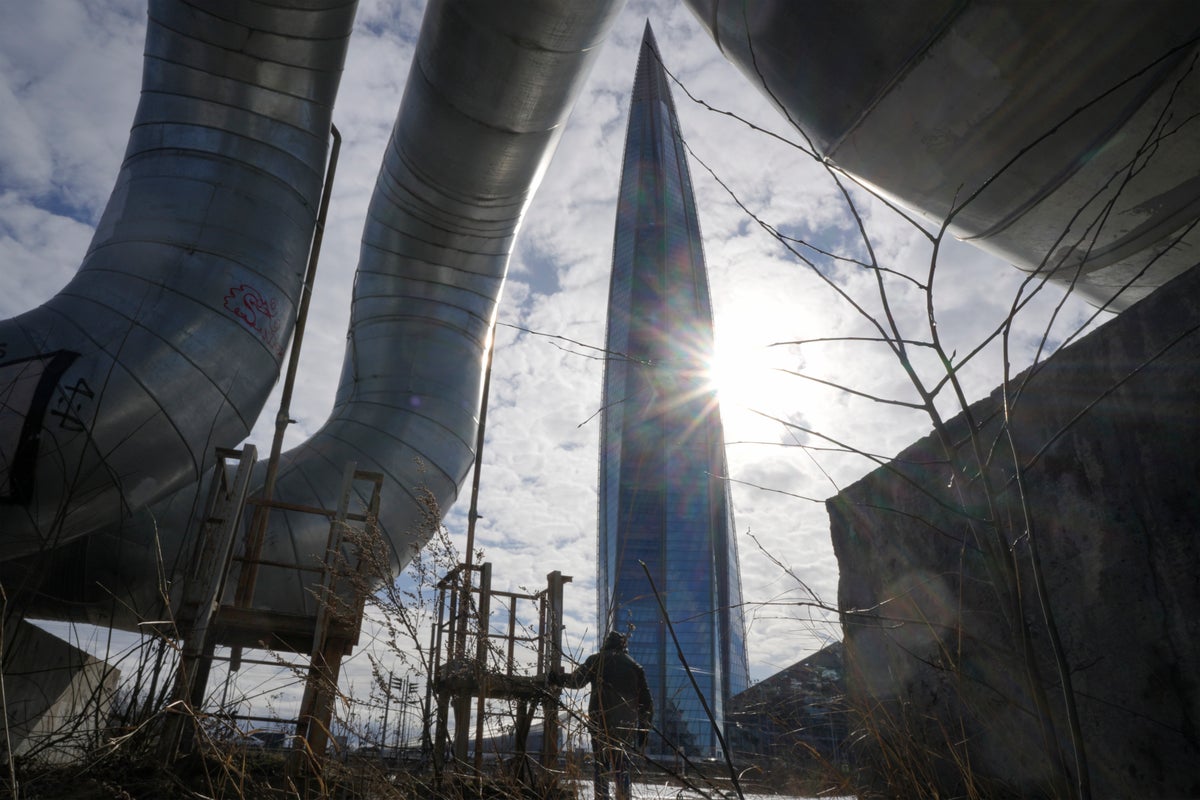
The European Commission said Friday it is discussing with Bulgaria its introduction of a fee on Russian gas transits, a measure that has angered EU co-member Hungary as well as Serbia — both recipients of Russian gas.
Bulgaria last week introduced the new energy tax on Russian natural gas transfers through its territory. It believes the tax will reduce the privileged position of Russia’s state-owned energy company Gazprom in southeastern Europe and deter Russian influence in the region in general.
“We are assessing and discussing with the Bulgarian authorities this recently enacted measure,” EC spokesperson Olof Gill said in Brussels on Friday.
“I can add that the EU sanctions policy towards Russia is designed, reviewed and adopted at EU level as has been the case since the beginning of the Russian aggression in Ukraine,” he said.
Russian officials have not commented on the new Bulgarian gas fee.
Bulgaria was cut off from Gazprom shipments soon after the Russian invasion of Ukraine, but it allowed the use of the Turk Stream pipeline that passes through its territory to supply Serbia and Hungary, two of the most pro-Russian governments in Europe.
The new tax of 10 euros per megawatt-hour on the Russian gas transfers was introduced along with a special Bulgarian law implementing sanctions against Russia due to its invasion of Ukraine. Gas price calculation is measured in megawatts as it reflects the amount of energy that a particular amount of gas brings.
The extraordinary transit fee has stirred anger in Serbia and Hungary, two of the recipients of Russian gas through the Turk Stream pipeline and a link via Bulgaria that is estimated to deliver an average of 43-45 million cubic meters per day.
Bulgarian Prime Minister Nikolay Denkov has said that he will talk to his colleagues in Serbia and Hungary and try to reassure them that the decision is aimed at reducing the profits of Gazprom rather than increasing their financial burden.
“We do not expect higher prices in Serbia and Hungary, but less profits for Gazprom. That is, to reduce the funds that enter the state budget of Russia to wage the war,” said Denkov, adding that with its deliveries to Serbia and Hungary, Russia aims to increase its influence there.
“Russia takes advantage of having access to the pipelines and releases gas without the corresponding fees, which creates unfair competition,” Denkov said.
The new tax on Russian gas prompted Hungarian and Serbian officials to accuse Bulgaria of a “hostile” act against their countries, which they said jeopardizes both countries' energy security.
“The extremely hostile action of the Bulgarians towards us is completely contrary to European solidarity,” Hungary's Foreign Minister Peter Szijjarto recently told Hungarian state television.
Szijjarto also said that Hungary and Serbia would soon release a joint statement on the matter. “We are cooperating with the Serbs, and we will not leave this step unanswered,” he said.
Serbia almost completely depends on Russian gas and oil supplies.
“It is an attempt to squeeze out Russian gas without giving us any alternative,” said Dusan Bajatovic, the head of Serbia's gas monopoly Srbijagas, recently.
EU member Hungary and Serbia, Moscow's traditional ally, have maintained close political relations with Russia, despite the Russian aggression on Ukraine.







